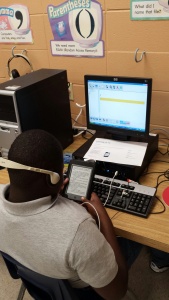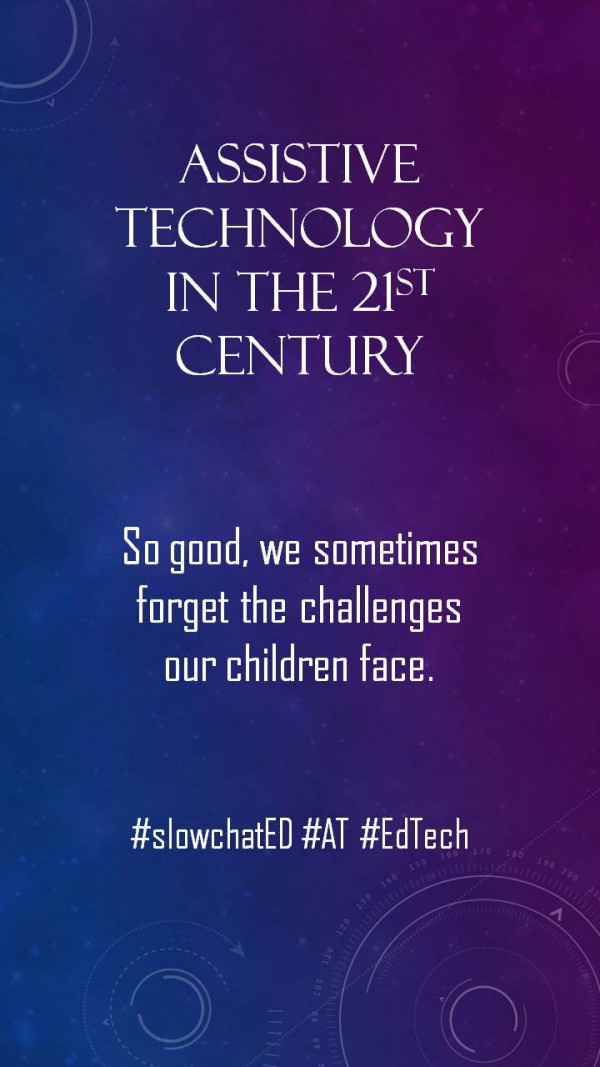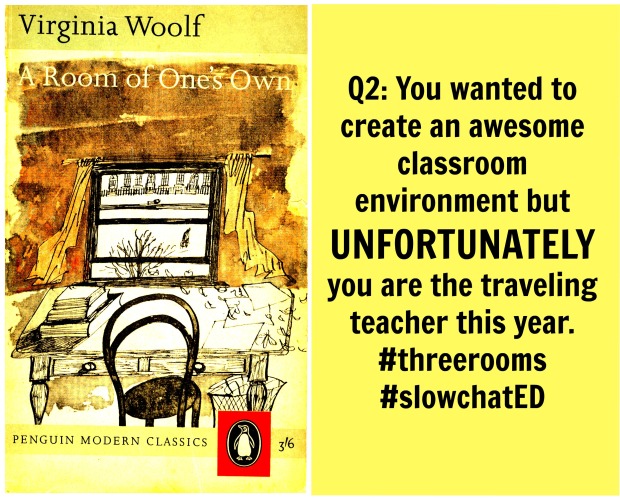This week, we’re talking about assistive technology in our schools. Assistive technology, or AT for short, is any device that allows kids with disabilities to access content, skills, and processes in ways that level the playing field with respect to their classmates. These technologies come in many different forms depending on how they assist the student and what disability they mitigate.
For example, audio books are one of the best assistive technologies available to students who have trouble accessing print. Whether the child is blind, dyslexic, struggles with a processing disorder, or whatever, audio books provide a pathway by which a child who has trouble reading with his or her eyes.
 Here, is a child reading an ebook on a Kindle Touch while listening to an audio version of the book provided by Learning Ally. This child qualifies for Learning Ally’s services, but had an easier time following along with the voice on an e-reader that allowed him to manipulate the text size. All of this, gave this young man the accommodations he needed in order to read one of R.L. Stine’s Goosebumps novels. When I met him just months earlier, he was unable to read Dr. Seuss’s One Fish, Two Fish, Red Fish, Blue Fish to me. This is the power of assistive technology.
Here, is a child reading an ebook on a Kindle Touch while listening to an audio version of the book provided by Learning Ally. This child qualifies for Learning Ally’s services, but had an easier time following along with the voice on an e-reader that allowed him to manipulate the text size. All of this, gave this young man the accommodations he needed in order to read one of R.L. Stine’s Goosebumps novels. When I met him just months earlier, he was unable to read Dr. Seuss’s One Fish, Two Fish, Red Fish, Blue Fish to me. This is the power of assistive technology.
Assistive technology does more than help kids read, though. We’ve issued NEO2 personal keyboards to students who are dysgraphic. We’ve issued digital spelling aids to kids with memory and retrieval disabilities. The Livescribe Smartpen brings AT to a whole new level giving the student the means to record lectures, take simplified notes, transmit those notes to digital platforms, and return to the lecture later in order to take the time he or she needs to assimilate the content.
Two things got me thinking about the power of AT this week. First, my 7-year-old and I were watching this DARPA video over the weekend featuring disabled vets testing prosthetic arms:
Imagine the finesse involved in drinking from a water bottle or eating a grape. Technology makes these mundane (but previously impossible tasks) possible again.
Second, I got a new student on Friday. This young lady arrived in the United States from China just days ago. Her mother insists that she attend our school despite the fact that we have no ESL program on campus. The girl speaks VERY little English and doesn’t understand much more. While wrestling with what I might do with this child after her translator left us (she had to get to class, herself), two of my students volunteered to take her under their wing. These ladies were undaunted by the fact that neither of them spoke any more Chinese than our new friend spoke English, and sure enough, by the end of class, all three of them had their phones out and were using Google Translate to carry on a conversation. They opened the door through which I will be able to start working with this child and begin the long journey of learning English in a mainstream classroom.
Given my past experience with struggling readers and writers, the amazing heights to which state of the art engineering is soaring, and this new experience using tech to communicate with a human being from an entirely different linguistic background, I figured that when #slowchatED needed a moderator this morning, something in the universe was telling me to start the conversation.
So here we are. Remember to tune in to #slowchatED each day this week for a different question and throughout the day each day, so you can stay involved in the discussion.












